Trash! Because there are so many distinct forms of rubbish, someone must sift, collect, and process them. Life will be better, and everyone will be able to appreciate it. But who is going to do it?
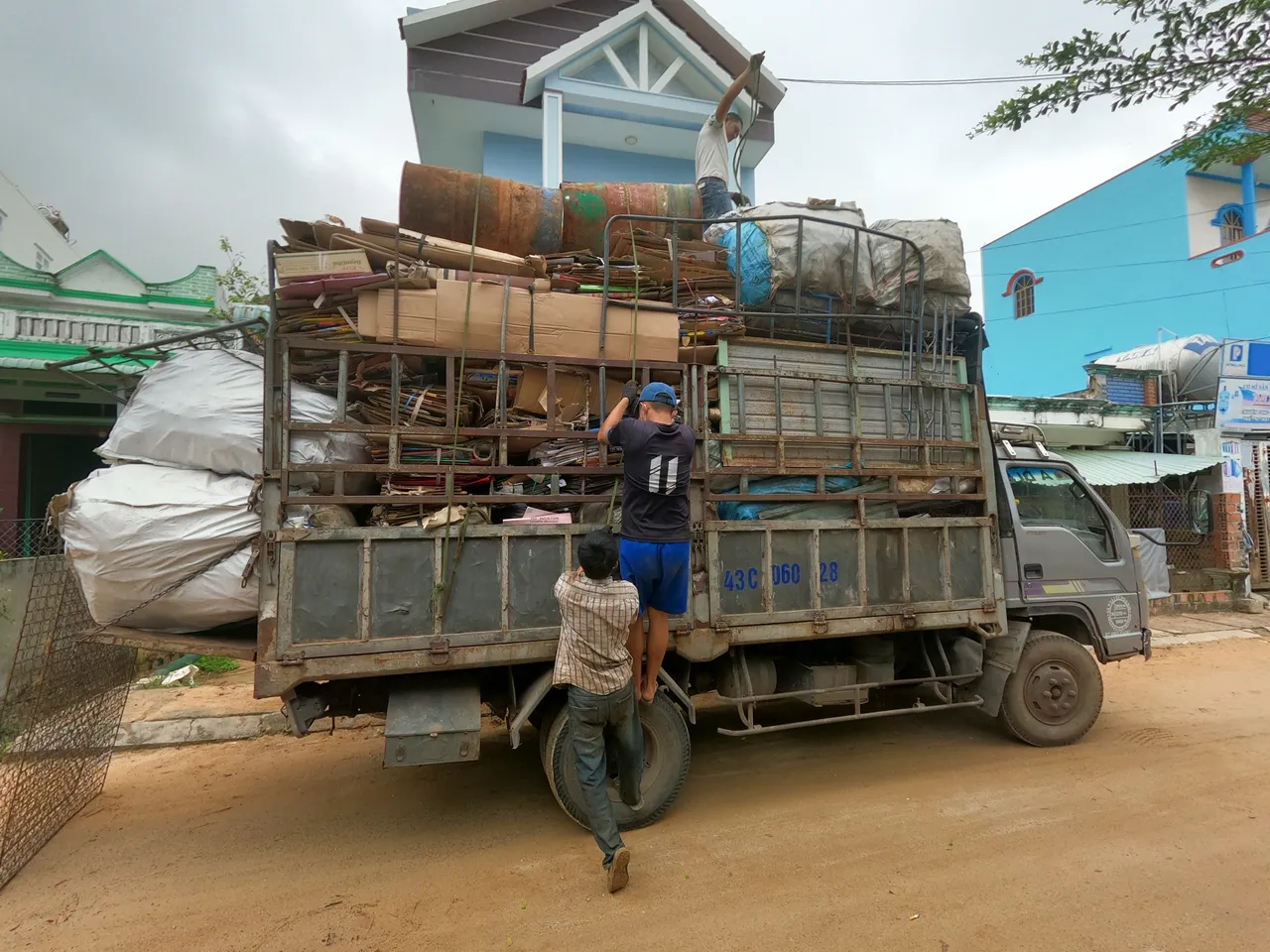
I requested permission to labor for a day with a friend's uncle (Quynh) in Quy Nhon city-Binh Dinh on my last trip for 2022. (Vietnam). It was an enjoyable event in which I discovered many new things and witnessed the tales behind them. Working with and dining with them, as well as conversing with them, allows me to gain a greater understanding of the meaning and noble equality of each profession. Everyone makes their own decisions, works hard, and enjoys it.
Mr. Quynh is a quiet, middle-aged man with scorched skin from the hard land of sand and sun. He owns a workshop that gathers and sorts various forms of rubbish. The daily job include importing (purchasing) commodities from smaller companies or other small collectors and returning them to be processed, closed, and sold to the company in charge. Let's take a look at it in a socialist and developing country if you're familiar with modern collection vehicles, convenient sorting bins, and a self-contained waste disposal process.
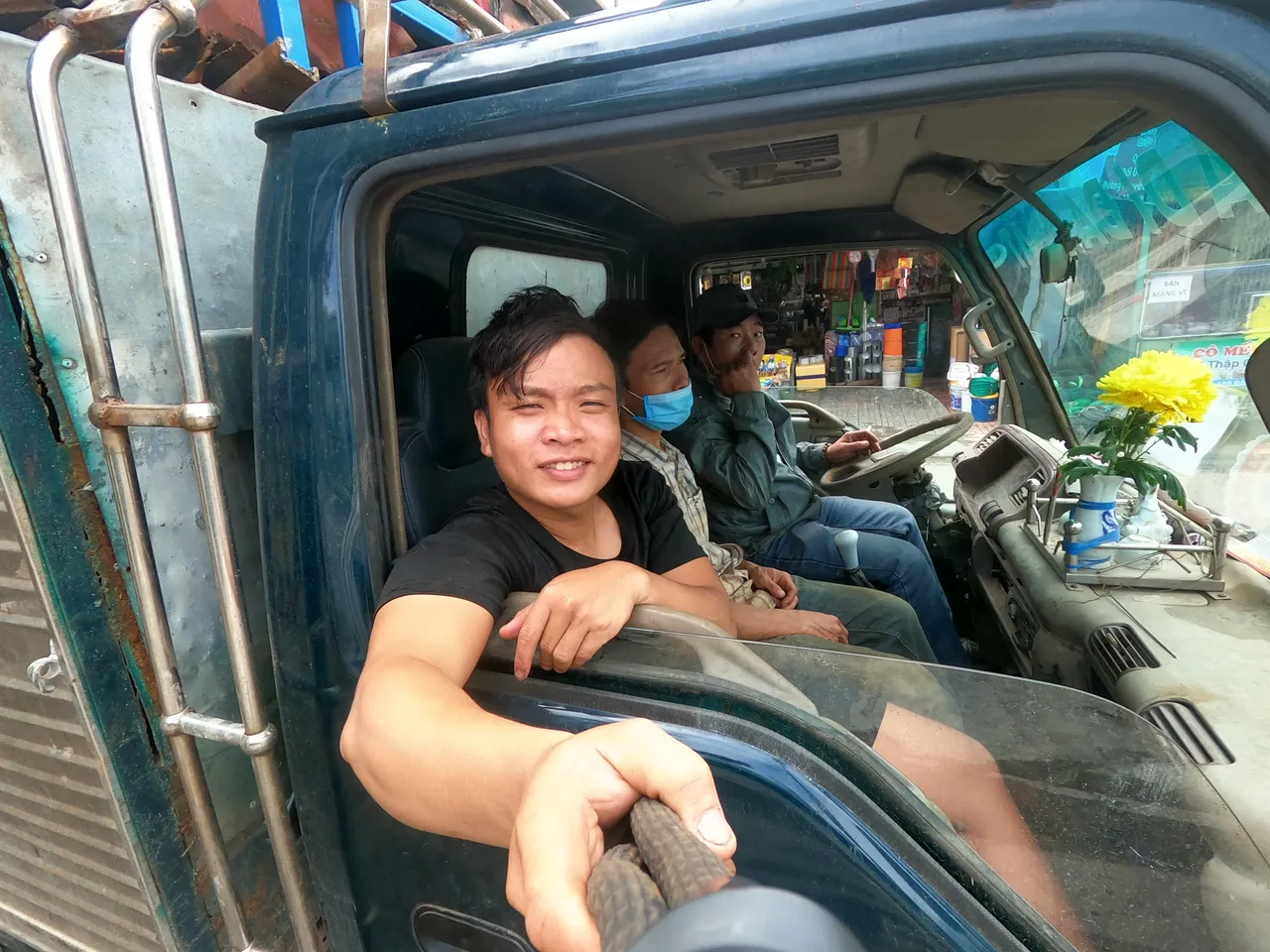
They have no concept of the weekend; every day is a working day for them, with an average of 10 hours of work per day. This morning's aim is to collect from smaller collectors in a coastal village 25 kilometers from the city. To fill the pickup truck's trunk, we unload recyclable debris such as iron, plastic bottles, and paper. Everything is done by hand, with the hands protected by a cloth glove. All of Mr. Quynh's employees are exceedingly happy and hardworking. They work with a smile (on the inside of the mask), and they are people who are dealing with terrible situations and financial consequences as a result of the Covid 19 pandemic. Because I'm not used to it, it occasionally gets scratches from metal objects. It isn't a simple task. Mr. Quynh will keep track of the information and determine the cost of what can be purchased.
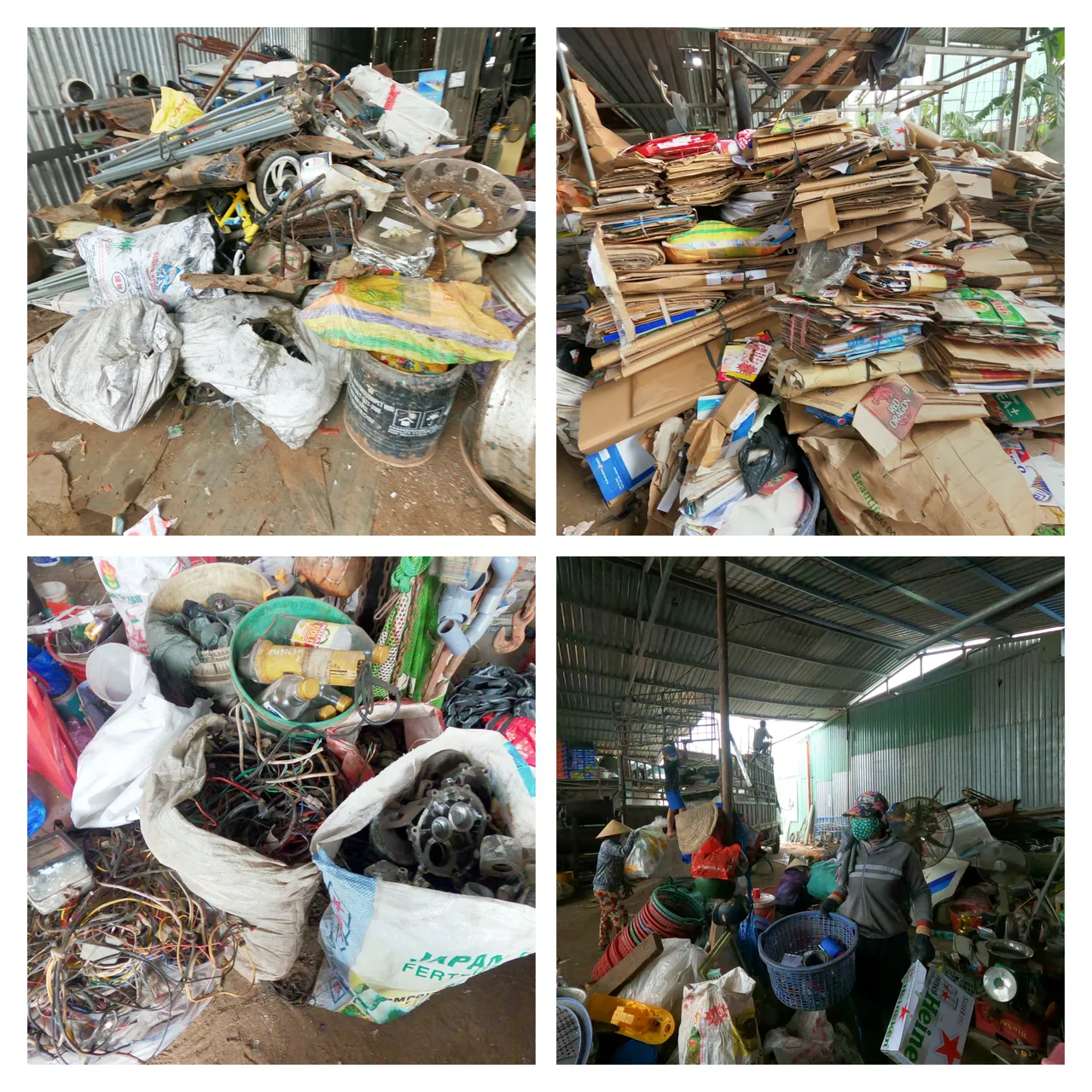
We tie the items together with thick ropes and transport them to the workshop (where they are sorted again and compacted metal scraps more neatly). Along the way, I gained a better understanding of more than just a little part of life in this town. When confronted by traffic cops, each truck like this must deliberately pull over to the side of the road and submit documentation (under the hidden money clip) in order to continue traveling (corruption, bureaucracy). According to Mr. Quynh, it is an unwritten rule that if you want to do business, you must have such expenses. Even if you don't want to, you will face a disproportionate fine or make your job more difficult. Because I have minimal touch with the officials here and elsewhere, it's usual.
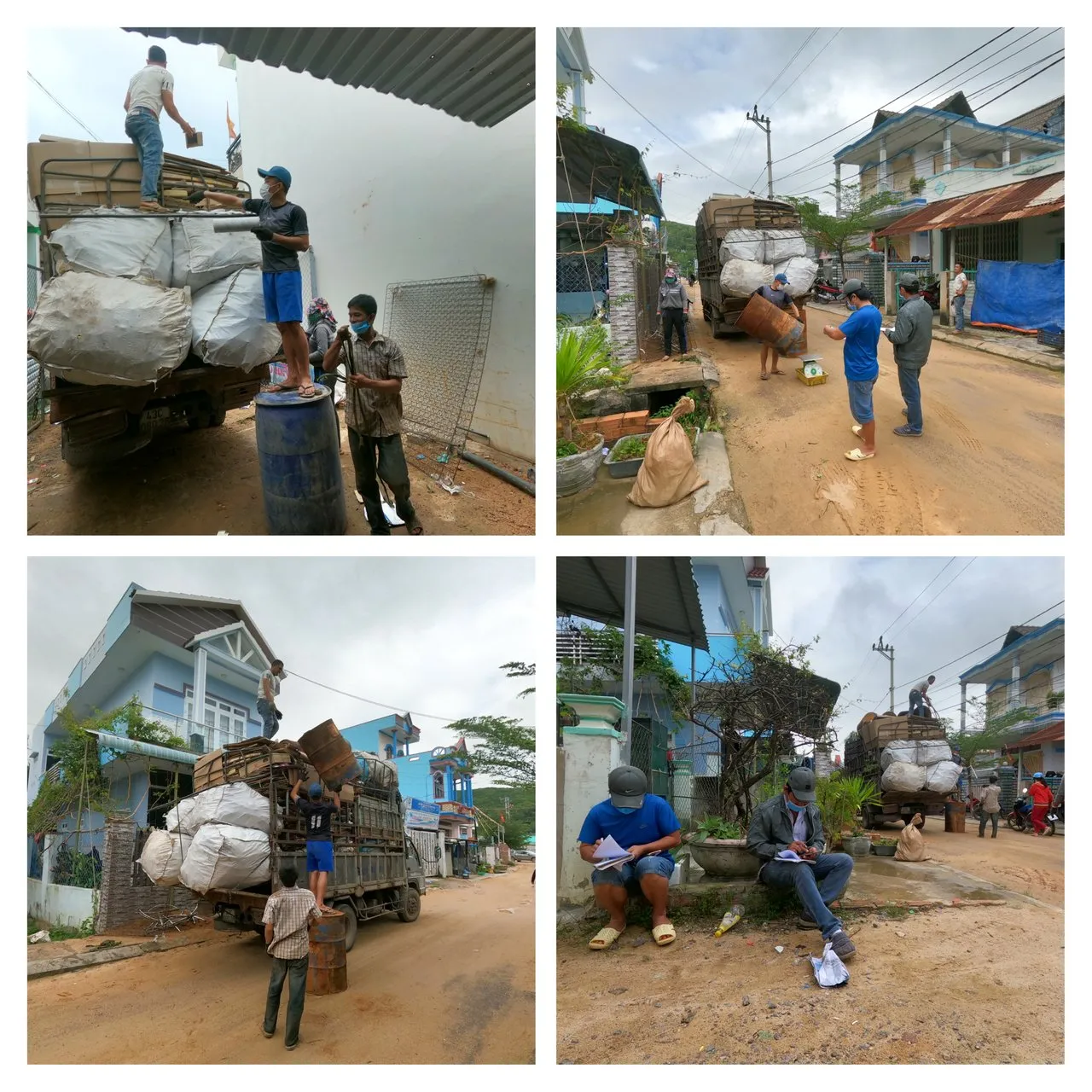
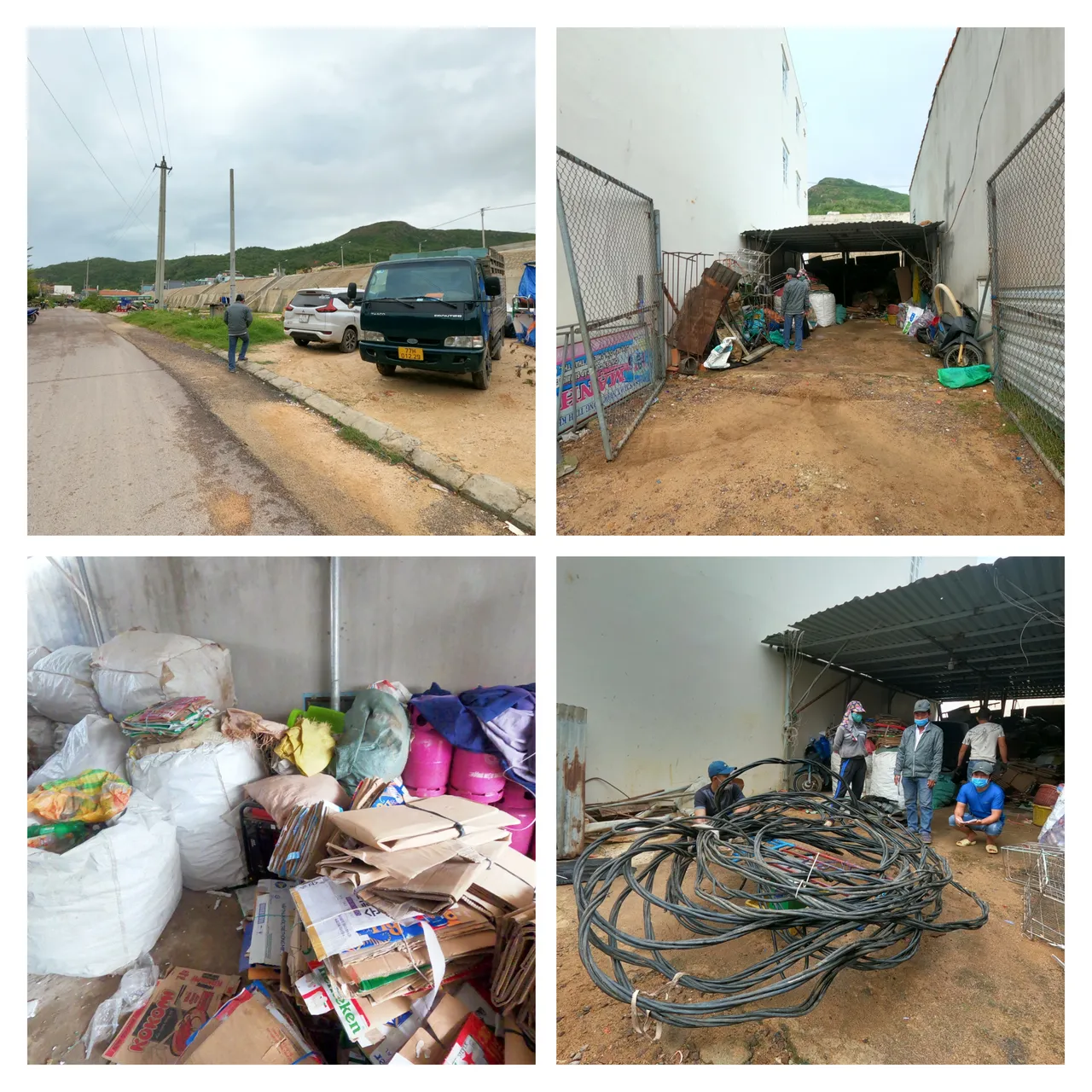
We unload the goods, separate the leftovers, and feed them into the stamping machine once we arrive at the factory. When there is enough paper and plastic waste to fill a small truck, it will be transferred to the appropriate waste processing plant. Smaller people in the city can also make purchases at the factory. They go to each house, restaurant, and construction site to buy old bicycles. There is no sense in sorting waste from families here, thus there are those that make a profession doing it. After sorting and stamping the scrap iron, it will be placed onto two trucks to be sold to an iron manufacturer (together with previously accumulated commodities), fastened to the truck, and...wait.
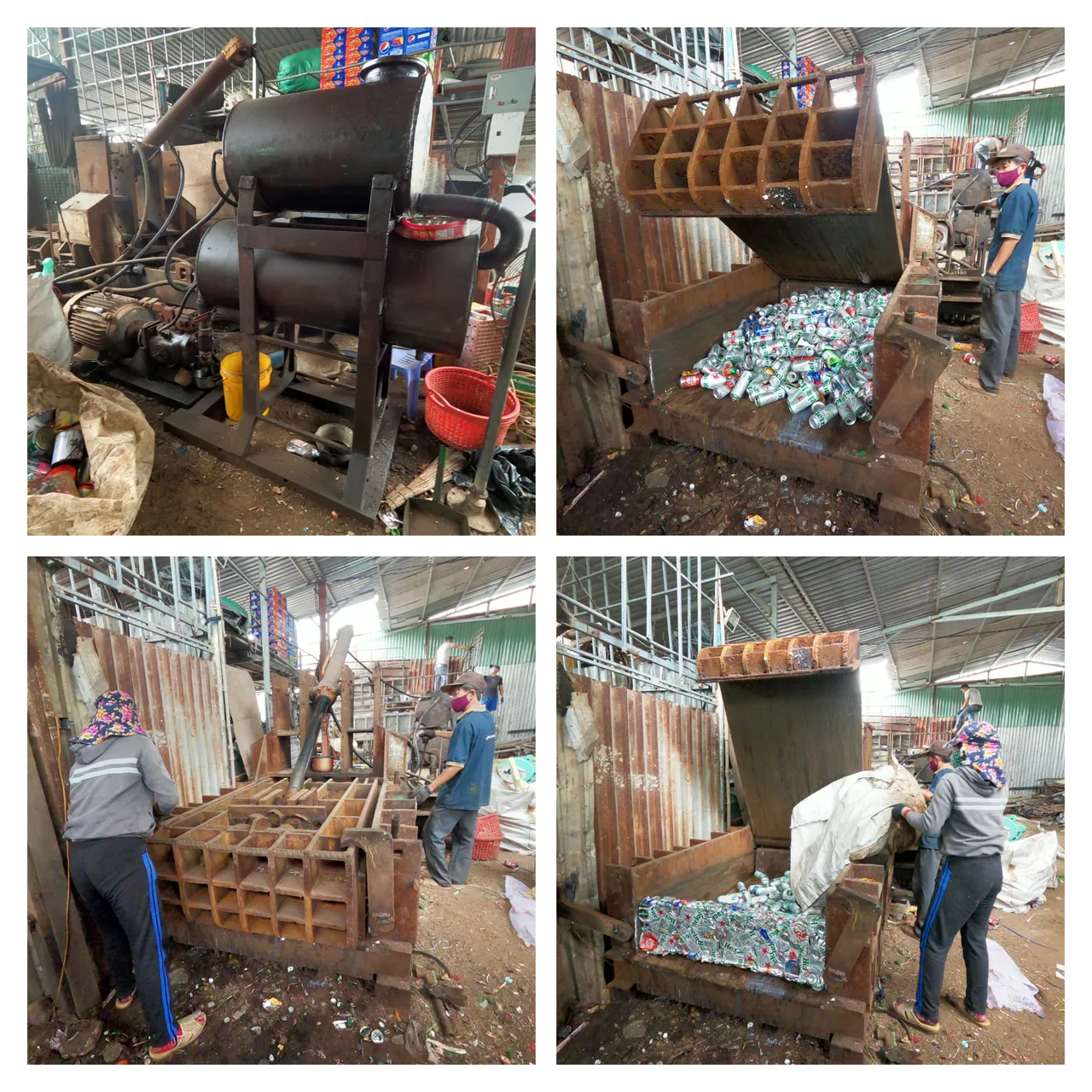
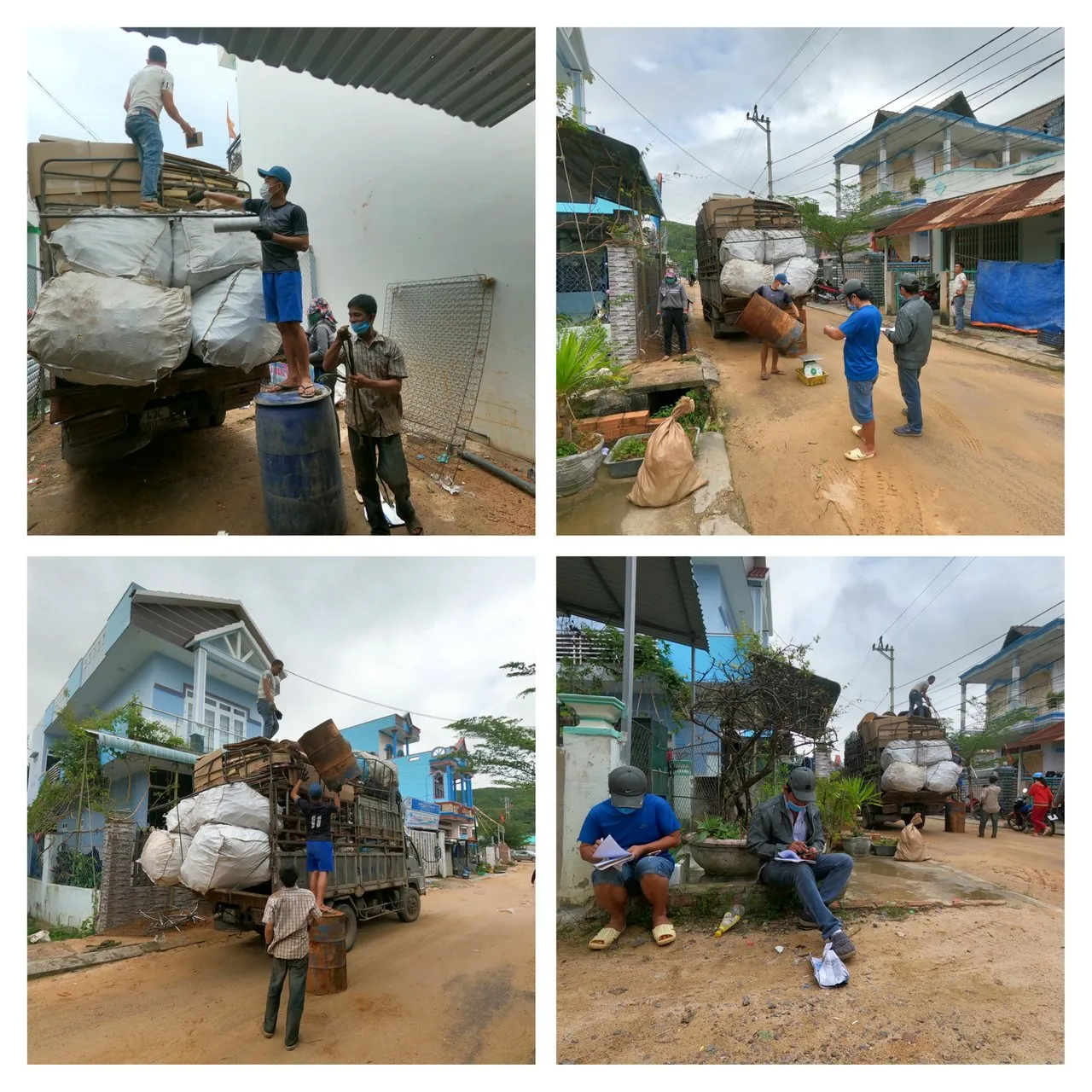
- What are you waiting for? Why put it off any longer?
My query has been addressed. They only go to the plant between 11 a.m. and 2 p.m. to avoid being stopped by traffic cops during their lunch break. When traveling from the city to the factory, such vehicles will have to pay extra money on traffic cops. We waited till 11:30 a.m. to go 35 kilometers to the city's outskirts. We stopped along the route to buy some personal stuff, and I was able to photograph the specialized drying along the road. Rice flour, coconut, and sesame seeds are used to make Binh Dinh coconut rice paper. It will be dried and grilled crispy, with a great homemade chili sauce on the side.
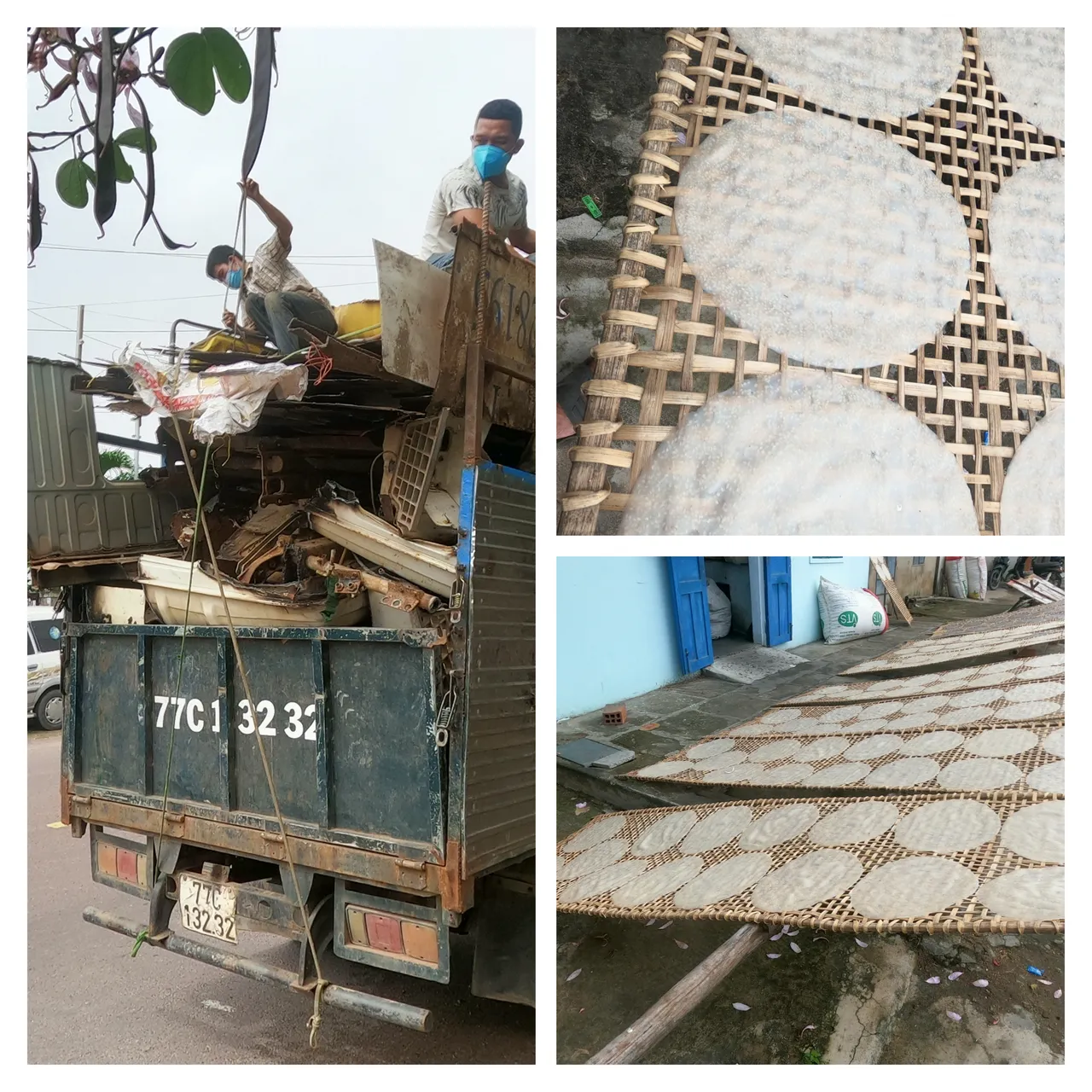
We ate lunch and waited for the plant to open when we arrived at the factory (13:30). They had food sent close for us to eat quickly. However, I ate a lot because I was hungry after a long shift. We drank coffee next to it after eating to wake up from our midday naps and talked with other drivers. Sit and witness the people methodically washing the enormous tractors. I'm curious if they enjoy their work. Because I see how hard those people's lives are.
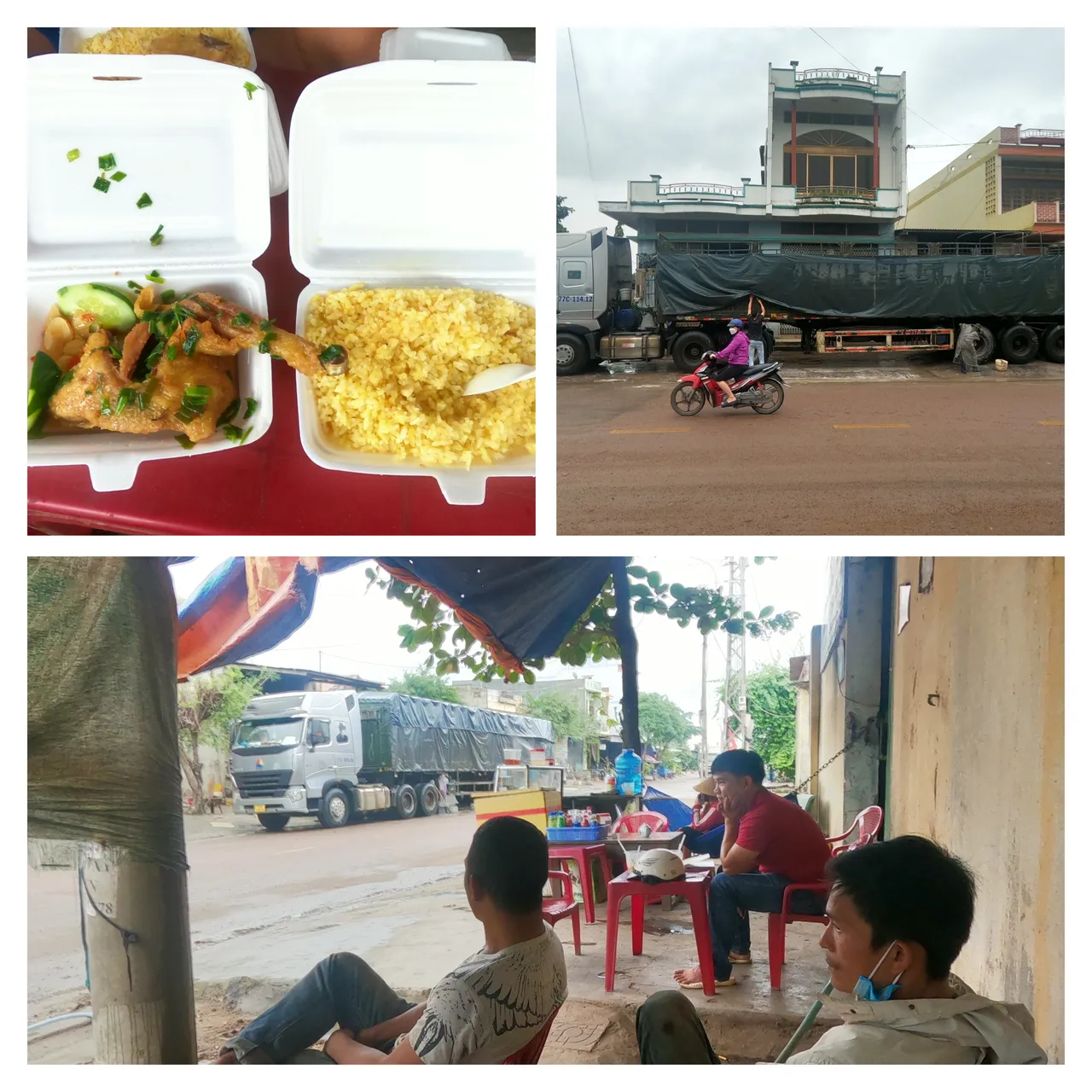
They will drive to the electronic weighing station and wait for the crane to load and unload the items to another truck after the plant opens and waits for their turn in line. These iron fragments will, it turns out, be melted down at a different mill in another region. The weight of the empty vehicle will be re-weighed to calculate the purchase price after all of the contents have been unloaded. Smaller stores with 3-wheelers or 2-wheelers are also available. And after the crane truck has done unloading, each driver will give the crane driver a little sum of money (in secret) equal to the truck's weight. Is that a thank-you gesture, I inquire?
Mr. Quynh, on the other hand, said no, it's money, and they should be light-hearted or their truck would be damaged. When I see and hear Mr. Quynh and his team, I find it difficult to earn money since there are so many hidden laws in the economy.
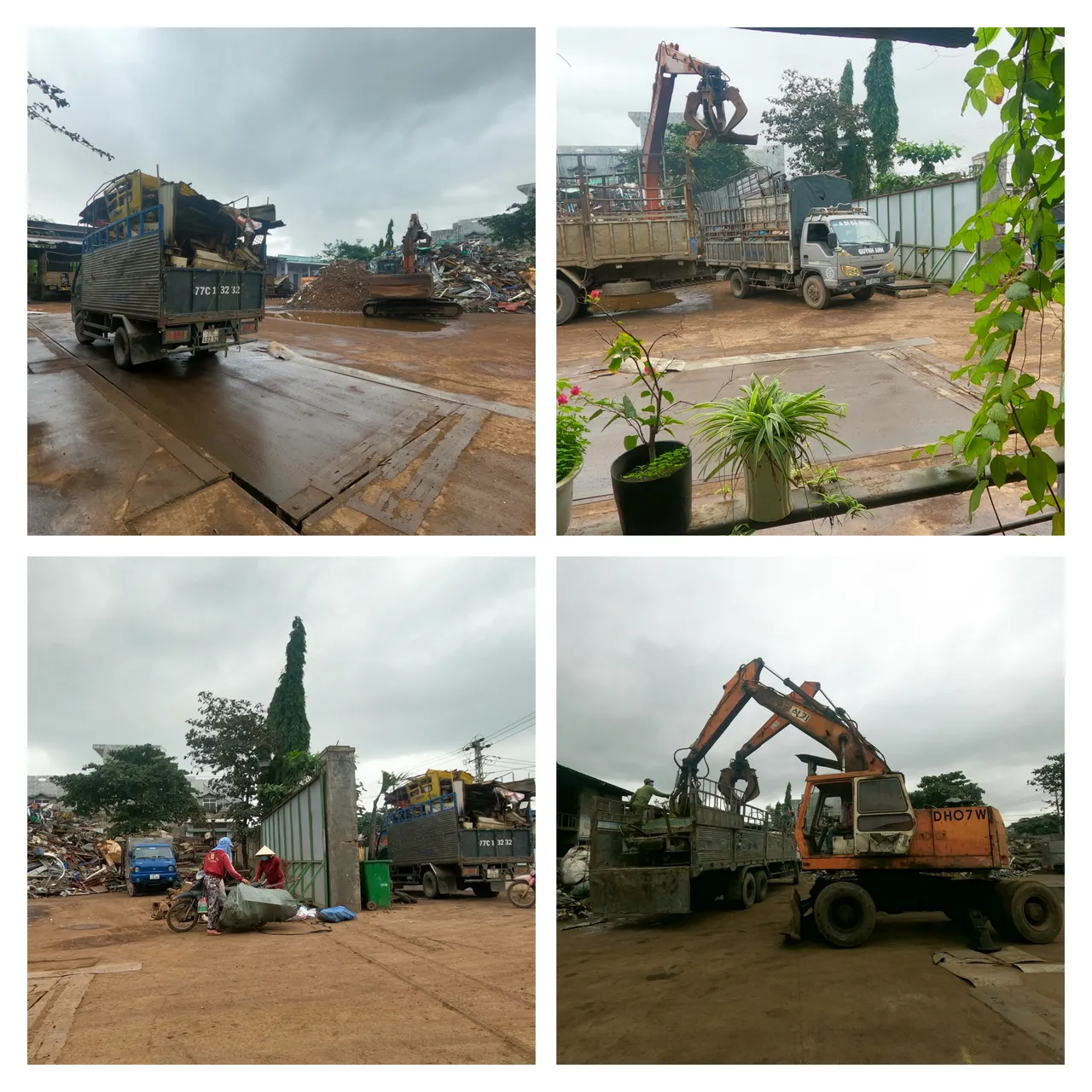
On a solitary and calm country road, we returned at around 3 p.m. The lush green rice fields and mountains make me happy to look upon. Mr. Quynh was ecstatic as well, probably because he had sold a lot of products today and was no longer concerned about being asked for money if the car was empty. I notice the Tet atmosphere is bursting as I walk past the wayside bonsai nurseries (in Vietnam, we welcome the new year according to the lunar calendar and the new year will be the beginning of February according to the solar calendar). These are golden apricot trees that have been painstakingly twisted using wooden rods and delicate wire. The blossoms will bloom in approximately 3 weeks, and Mr. Quynh also handed them $50 to take care of his apricot tree for a year, and they will care for and transfer the tree to his house in about 15 days after the traditional New Year.
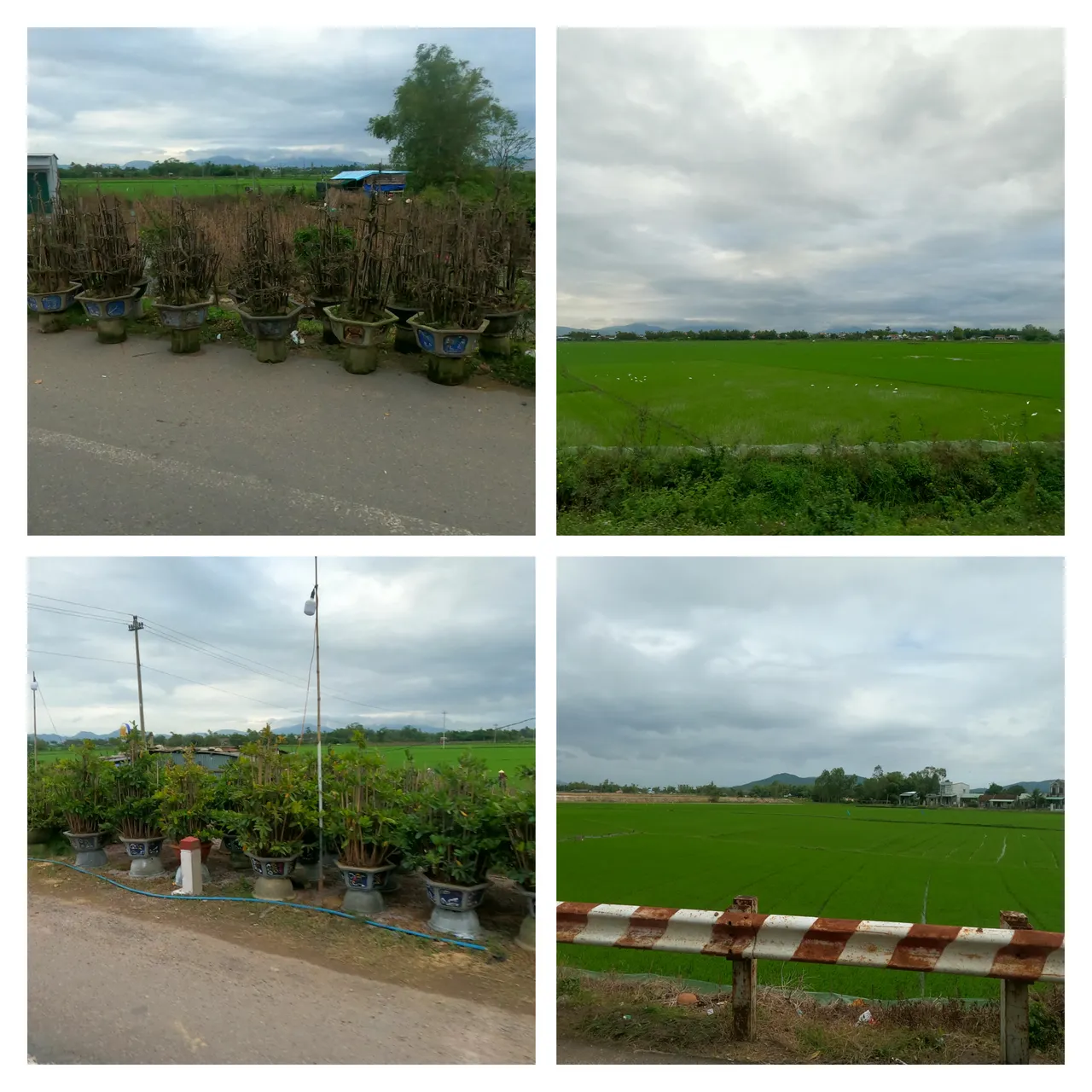
We continued to collect garbage at other locations and transport it back to the plant, arriving home about 17:30 p.m. to relax. To rest and have dinner with Mr. Quynh's family, I went to Mr. Quynh's residence. I admire his family's friendliness and the simplicity of his home. A big field, particularly in front of his house, provides a tranquil zone apart from the sound of frogs. This has been an unforgettable and pleasurable experience for me. And I admire their work, as they are dusty all day yet have clean hearts and care for others around them.
I hope you have greater compassion for individuals who are unable to work on weekends and therefore make life more beautiful.
Thank you very much.
*** All content and images are mine (Gopro 8)